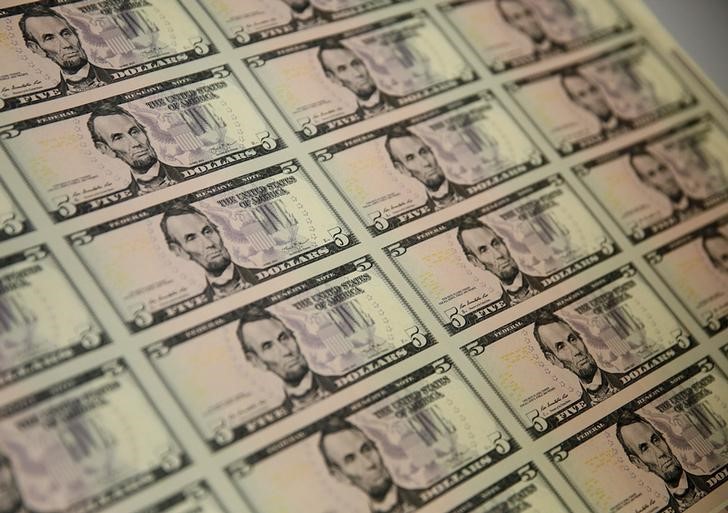Investing.com - The dollar fell to eight-month lows against the other major currencies on Friday, as markets continued to digest policy decisions by the Bank of Japan and the Federal Reserve and as investors awaited the release of U.S. economic reports later in the day.
USD/JPY was down 0.93% at one-and-a-half year low of 107.10.
The yen remained broadly supported after the BoJ chose on Thursday to hold its monetary policy, defying market expectations for additional monetary easing.
The decision came a day after the Fed left interest rates unchanged close to zero on Wednesday and offered little guidance on future rate hikes.
Market participants were looking ahead to U.S. data on employment costs, personal spending and consumer sentiment due later Friday, for further indications on the strength of the economy following a mixed bag of reports on Thursday.
EUR/USD rose 0.25% to 1.1379, off two-and-a-half week highs of 1.1413 hit earlier.
Eurostat reported on Friday that the euro area’s gross domestic product rose 0.6% in the first quarter, up from 0.3% in the three months to December and beating expectations for a growth rate of 0.4%.
On a year-on-year basis, the bloc’s GDP rose 1.6% in the first quarter, exceeding expectations for an expansion of 1.4% and unchanged from the previous quarter.
A separate report showed that euro zone consumer price inflation fell by 0.2% this month, worse than expectations for a 0.1% decline, and following a final reading of 0.0% in March.
Core CPI, which excludes food, energy, alcohol, and tobacco costs increased by 0.8% in April, below forecasts for 0.9% and down from 1.0% a month earlier.
The dollar was higher against the pound, with GBP/USD down 0.17% at 1.4583 and was lower against the Swiss franc, with USD/CHF sliding 0.34% to 0.9633.
In the U.K., official data showed that net lending to individuals rose by £9.3 billion in March, beating expectations for an increase of £5.0 billion.
Data also showed that U.K. mortgage approvals rose by 71,360 last month, compared to expectations for an increase of 74,500.
Meanwhile, the KOF economic barometer for Switzerland ticked down to 102.7 in April from an upwardly revised reading of 102.8 in March, data showed.
The data came shortly before Swiss National Bank President Thomas Jordan reiterated that the Swiss franc remains overvalued.
The Australian dollar was steady, with AUD/USD at 0.7629, while NZD/USD edged up 0.16% to 0.6973.
The kiwi strengthened after data showed that the ANZ business confidence index for New Zealand rose to 6.2 in April from a reading of 3.2 the previous month.
Elsewhere, USD/CAD fell 0.31% to a fresh nine-month low of 1.2517.
The U.S. dollar index, which measures the greenback’s strength against a trade-weighted basket of six major currencies, was down 0.31% at 93.44, the lowest since August 2015.
